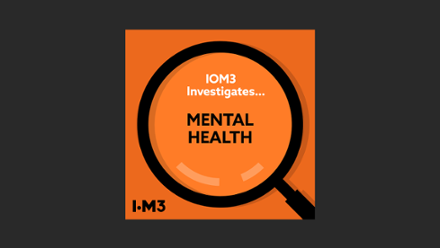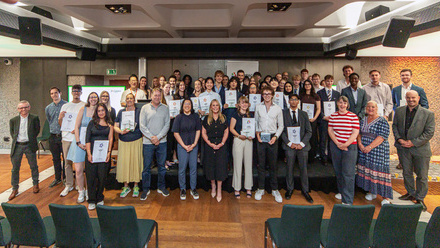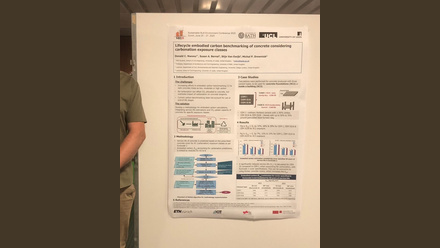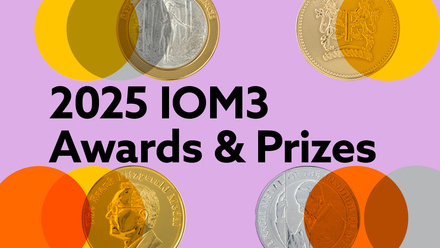Head first – protecting mental health in academia
Jane Remmer, Management Service Team Leader, explains how she set up a wellbeing initiative for staff and researchers in the School of Physical Sciences at the University of Liverpool, UK.
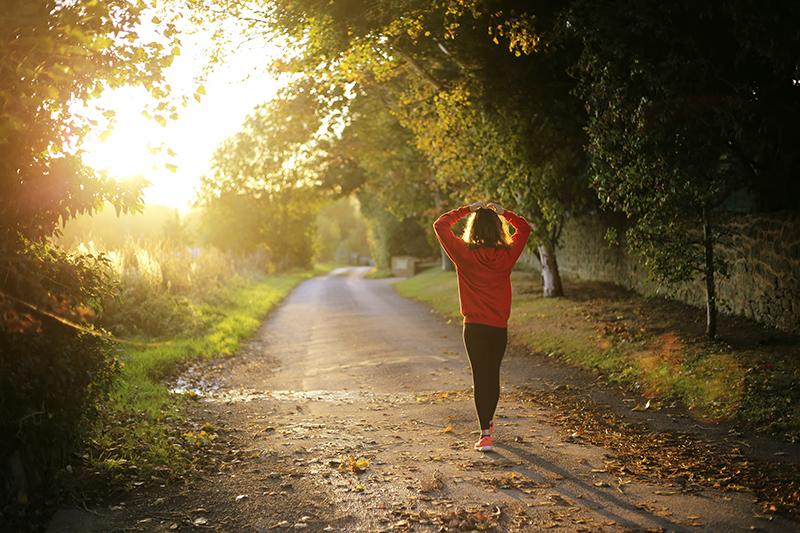
Back in 2018, I had concerns about the wellbeing of some of the researchers and staff within the School of Physical Sciences at the University of Liverpool, UK. Our School is home to over 100 leading academics from across our Departments of Chemistry, Maths and Physics. From working closely with some individuals on a daily basis, I could tell that they were struggling with their own wellbeing. I wanted to find out more and see how I could help in some way, so I enrolled on an internal mental health first aid workshop at the University. The workshop helped me to gain a deeper understanding of mental health across the higher education sector and within research-intensive institutions. I quickly learnt that due to working in high pressurised environments, many individuals who were struggling with their mental health and wellbeing could be reluctant to reach out and ask for help.
Attending the workshop led me to consider important issues and raised questions in my own mind:
- Why was there a significant number of researchers struggling with their mental health in the higher education sector?
- How prevalent was this within the School of Physical Sciences?
- Why do people feel helpless in the first place, and how can we ensure that we work and study in a community where this is not considered a taboo subject, so people can talk honestly and openly about their feelings?
- Surely, there must be something I can do to help?
Promoting wellbeing
After attending the workshop, I felt enthused and inspired to provide support and solutions to tackle this wellbeing challenge. As a result, the School of Physical Sciences Wellbeing Team was established in September 2018. I assembled a diverse team including professional services staff, researchers and academics to offer support and engage with our staff and researchers who were struggling with their mental health and wellbeing. Together, we wanted to change research culture so that it becomes normal and acceptable for individuals to reach out and ask for help. Our mantra is, ‘it’s okay not to be okay’. Ultimately, nobody should feel alone.
The majority of our Wellbeing Team are trained mental health first aiders and we have organised many wellbeing workshops on topics such as mindfulness and meditation which have been well attended. We also run physical demonstrations on Tai Chi and calligraphy, to improve wellbeing for staff and students of our community.
Feedback from the workshops has been positive with comments such as:
- ‘Tai Chi was fun and easy to take into an office environment.’
- ‘The open discussion about mental health in a friendly atmosphere was very useful.’
- ‘Great – felt better just attending.’
- ‘Outdoor yoga sessions in summer would be fab.’
Creating a space
Feedback from our community informed us that there was significant demand for a space in which people could take some ‘time out’. To meet this need, we refurbished and transformed a room within our Chemistry Department to create a School of Physical Sciences Wellbeing room. This tranquil room provides a place for any staff member or student in the School who may need a quiet and calming space to relax for a while. We also conduct lunchtime drop-in sessions where organised activities take place, such as playing board games and attempting macramé.
Award-winning initiative
Our Wellbeing Team was nominated multiple times for the 2019 University of Liverpool Staff Awards within the Health & Safety Wellbeing category. We were delighted as a team to receive the recognition and it makes me feel very proud of the many activities and initiatives that we have delivered in a relatively short space of time, given the wellbeing roles are in addition to our day jobs.
Building on our success, we collaborated with local charity, Open Door, to offer an online eight-week cognitive behavioural therapy programme which was very successful. Engagement across the programme was excellent, boasting a 80% completion rate. Forty-six per cent of the sessions were rated as ‘fantastic’, 40% were rated as ‘really helpful’ and 14% as ‘helpful’. It was particularly well timed as the beneficiaries completed the programme during the start of the COVID-19 pandemic.
The pandemic has presented many challenges, with students, academics and professional services staff impacted in significant and different ways. A recent anonymous survey conducted by our Wellbeing Team asked our School community questions surrounding anxiety and their mental health. This survey raised many issues related to COVID-19 and lockdowns, including increased anxiety, burnout, difficulties balancing home-schooling and childcare with research, as well as worries around returning to our campus.
Many PhD students and researchers feel as though they are compensating for lost time, adding extra pressure to get their research done and working longer hours. And many individuals reported that they feel lonely, as they have not physically seen their family and friends for some time, so feel they have no emotional support system.
Recognising the impact COVID-19 has had over the last year, we conducted a ‘Shout-Out Awards’ initiative in early 2021 to provide an opportunity to say thank you for something someone at the University did for them during a challenging year. Those nominated received a certificate and a voucher was issued to shortlisted nominees. This small, but significant, gesture created positivity and delight among recipients.
COVID-19 has not only shown that our health and wellbeing are so vitally important but that the world works best as a community. To truly ‘build back better’, we all need to prioritise our health and wellbeing going forward. For some, it could be for the first time in their lives.
In the School of Physical Sciences, we are embedding wellbeing in everything we do, allowing us to accelerate our events and initiatives across the University. Post-pandemic, I am optimistic that the hard work and resilience of our Wellbeing Team will pay off and make a real impact on the lives of our staff, researchers and academics.
The views and opinions expressed in this article are those of the author and do not necessarily reflect the official policy or position of the University of Liverpool.


